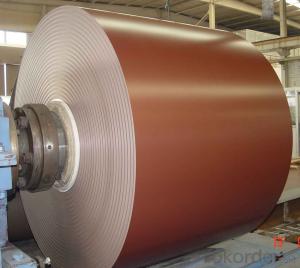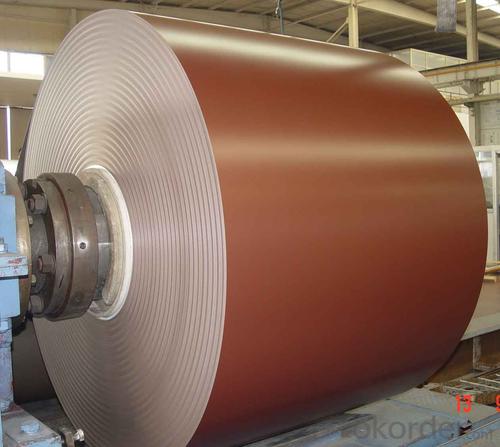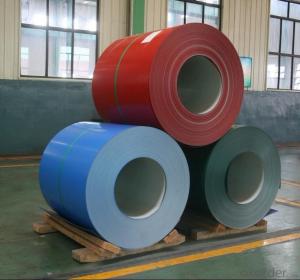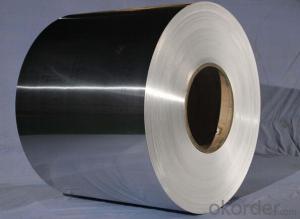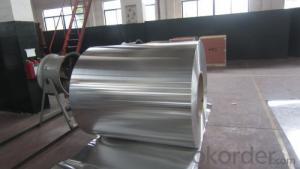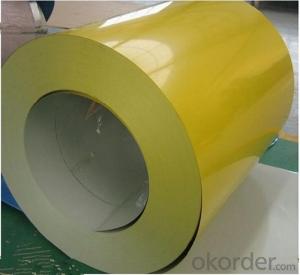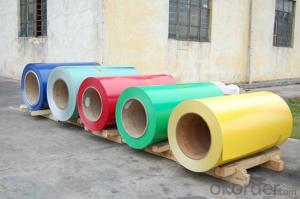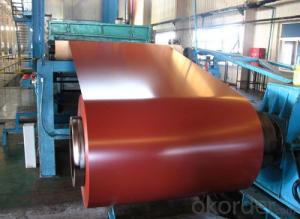Aleris Aluminum Coil for Color Coated Aluminum Roll in Construction Decoration
- Loading Port:
- Shanghai
- Payment Terms:
- TT OR LC
- Min Order Qty:
- 2 m.t.
- Supply Capability:
- 60000 m.t./month
OKorder Service Pledge
OKorder Financial Service
You Might Also Like
Specification
Color Coated Aluminium Roll For Contruction Decoration
Specifications
Alloy | 1050, 1060,1100, 3003 3004 3105 3A21 5005 5052 etc |
Temper | O/H12/H14/H1/H18/H32/H34/H36/H38//H111/H112/H116/H321/T6/T651/T3/T351 etc |
Thickness | 0.1mm to 6mm |
Width | 20mm to 3300mm |
Coil weight | 100kgs to 6 tons depends on actual requirement |
Core material | Aluminum or paper |
Coil inner diameter | 75mm, 150mm, 200mm, 300mm, 405mm, 505mm or as required |
Appplication | construction, roofing, decoration, lamping etc |
Package | eye to wall or eye to the wall for aluminum coil with wood pallet (wooded case also available) |
Characteristics
1) Excellent weather-proof durability
2) Anti-ultraviolet
3) High erosion resistance
4) Stable color and gloss
5) Good mechanical processing performance
6) Abrasion resistance
7) Anti-impact
8) High flexibility
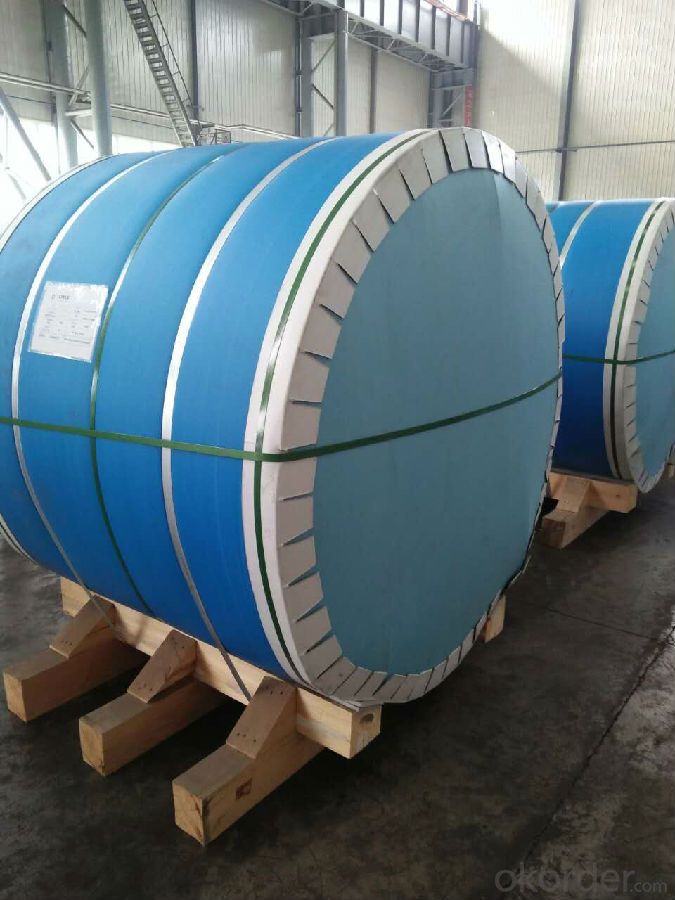
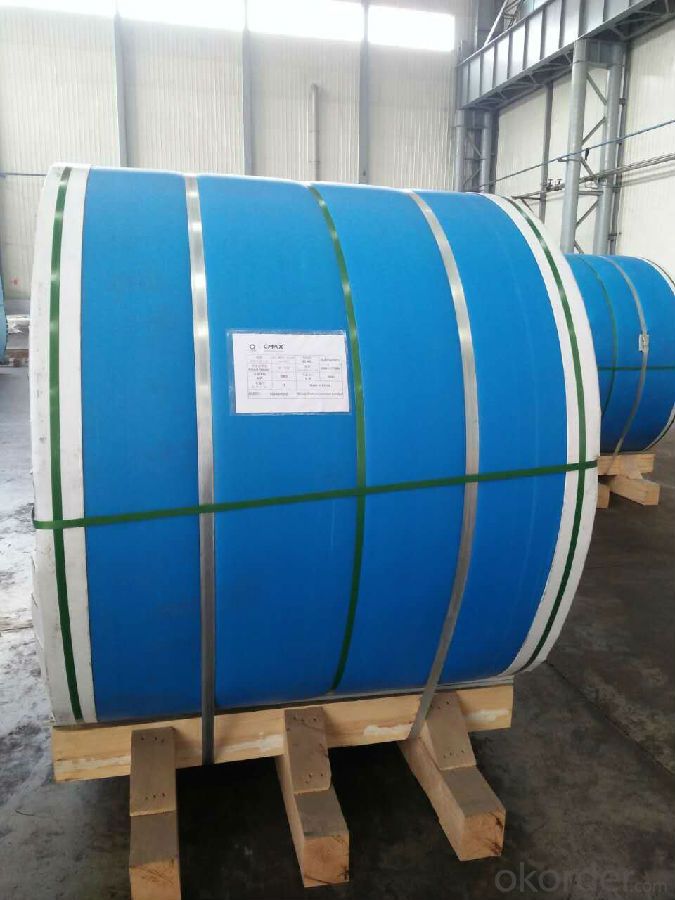
Coating varieties
Polyester Coatings (PE)
PE (polyester) coatings exhibit an excellent combination of hardness, flexibility, flow, appearance, and superior resistance to dirt retention in indoor and outdoor applications. These coatings are highly resistant to abrasion, metal marking, staining, and marring, and require minimal maintenance. Glazetech uses polyester paints which provide excellent colour and gloss retention properties.
Polyvinylidene Fluoride Coatings (PVDF)
PVDF (polyvinylidene fluoride) is a chemical resistant thick film barrier coating commonly used in architectural applications where both excellent appearance and substrate protection must be maintained over a long period of time. This coating is unaffected by most chemicals and solvents and has excellent wear and abrasion resistance. PVDF also has a high dielectric strength, excellent resistance to weathering and the ability to self extinguish.
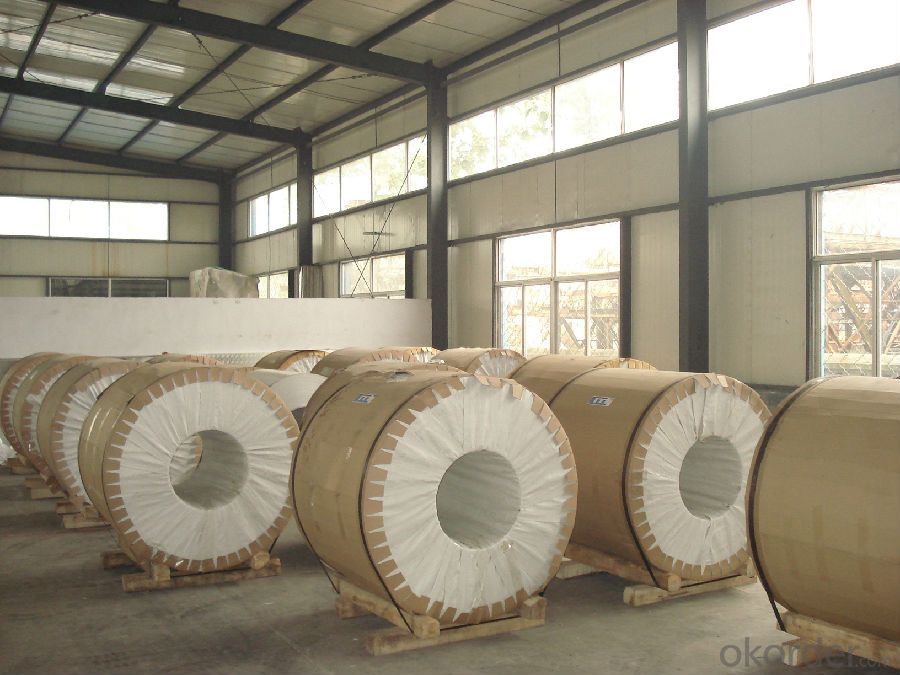
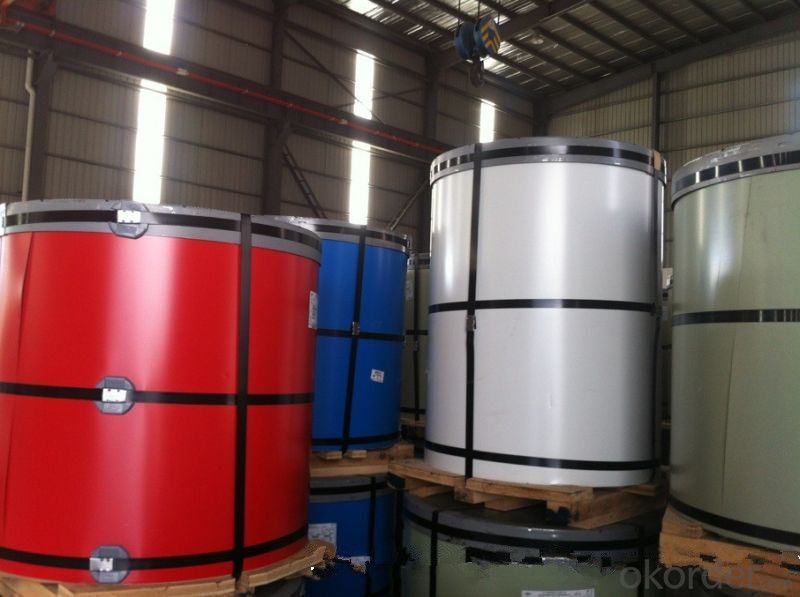
- Q: What are the typical applications of aluminum coils in the automotive industry?
- Aluminum coils are commonly used in the automotive industry for various applications. They are primarily used in the manufacturing of heat exchangers, such as radiators and condensers, due to their excellent thermal conductivity. Additionally, aluminum coils are utilized in the production of car body panels, as they are lightweight and offer high strength-to-weight ratio, contributing to improved fuel efficiency. Moreover, they are also employed in the production of air conditioning systems, wiring harnesses, and electrical components due to their corrosion resistance and electrical conductivity properties.
- Q: Can aluminum coils be used in pharmaceutical manufacturing?
- Yes, aluminum coils can be used in pharmaceutical manufacturing. Aluminum is commonly used in the pharmaceutical industry for various purposes, including packaging and manufacturing equipment. Aluminum coils can be used to make containers, caps, and closures for pharmaceutical products. These coils are often used in the production of blister packs, which are widely used for packaging tablets and capsules. Aluminum is preferred in pharmaceutical manufacturing due to its excellent barrier properties, resistance to corrosion, and ability to protect the integrity of the pharmaceutical products. Additionally, aluminum is lightweight, recyclable, and has a low melting point, making it a versatile and cost-effective choice for pharmaceutical manufacturing.
- Q: How are aluminum coils coated or finished?
- Aluminum coils can be coated or finished in various ways to enhance their appearance, protect against corrosion, or improve their functionality. The most common methods of coating or finishing aluminum coils include painting, anodizing, and laminating. Painting is a popular coating method where a layer of paint is applied onto the aluminum surface. This can be done through different techniques such as spray painting, roll coating, or coil coating. The paint can be customized in terms of color, gloss level, and texture, allowing for a wide range of aesthetic options. Additionally, painting can provide protection against atmospheric conditions and increase the durability of the coils. Anodizing is another widely used technique, especially for architectural and industrial applications. It involves creating a controlled oxide layer on the surface of the aluminum through an electrochemical process. Anodized aluminum coils have a uniform and durable finish that enhances their resistance to corrosion, scratching, and fading. They are available in various colors and can be further enhanced with a matte, brushed, or polished appearance. Laminating is a process where a thin layer of protective film is applied onto the surface of the aluminum coil. This film can be made of different materials such as PVC, polyester, or polyethylene. Laminating provides an extra layer of protection against scratches, dirt, and UV radiation. It also allows for easy cleaning and maintenance of the coated aluminum coils. In addition to these methods, aluminum coils can also be coated with specialized finishes for specific applications. For example, coils used in the automotive industry may have a polymer-based coating that provides lubricity and reduces friction. Coils used in the construction industry may have a heat-reflective coating to improve energy efficiency. Overall, the coating or finishing of aluminum coils plays a crucial role in enhancing their appearance, protecting against corrosion, and improving their functionality for various applications. The choice of coating method depends on the desired outcome, budget, and specific requirements of the end-use industry.
- Q: What are the acoustic properties of buildings using aluminum coils?
- Buildings using aluminum coils for their acoustic properties can benefit from enhanced sound insulation and noise reduction. Aluminum coils have good sound absorption capabilities, helping to minimize the transmission of sound waves through walls, ceilings, and other surfaces. Additionally, the lightweight nature of aluminum coils allows for easy installation and can help reduce the overall weight of the building structure.
- Q: What are the precautions to be taken while handling aluminum coils?
- Some precautions to be taken while handling aluminum coils include wearing protective gloves to prevent cuts or injuries, using proper lifting techniques to avoid strain or back injuries, storing coils in a dry and well-ventilated area to prevent corrosion, using appropriate equipment and tools for handling and transportation, and following safety guidelines provided by the manufacturer. It is also important to be aware of the weight and balance of the coils to prevent accidents or damage.
- Q: What is the expected lead time for manufacturing aluminum coils?
- The lead time for manufacturing aluminum coils can vary depending on several factors, such as the complexity of the coil design, the size and quantity of the coils being manufactured, the availability of raw materials, and the production capacity of the manufacturing facility. Generally, the lead time for aluminum coil manufacturing can range from a few weeks to several months. If the coils have a simple design and readily available raw materials, the lead time is usually shorter. However, if the coils have a complex design or require specialized materials, the lead time may be longer. Additionally, the production capacity of the manufacturing facility is a significant factor in determining the lead time. Facilities with higher production capacities can manufacture and deliver aluminum coils more quickly than those with lower capacities. To obtain an accurate estimate of the expected lead time, it is important to consult with the specific manufacturer. They will assess the project's specific requirements and provide a timeframe that aligns with those requirements.
- Q: How much is one ton of aluminum coil?
- The price of aluminum sheet is calculated according to the price of aluminum ingot + processing fee (aluminum plate state), and the specific price is also different according to the size and size of aluminum sheet.If you have any questions, please ask. I hope to help you.
- Q: This question asks about the environmental effects associated with the use of aluminum coils.
- <p>The environmental impacts of using aluminum coils include energy consumption during production, potential release of greenhouse gases, and waste generation. Aluminum production requires significant energy, contributing to carbon emissions. Additionally, the extraction of bauxite, the primary source of aluminum, can lead to habitat destruction and water pollution. However, aluminum is highly recyclable, and recycling it saves energy and reduces waste. Proper disposal and recycling practices can mitigate some of these impacts, making aluminum a more sustainable choice when managed correctly.</p>
- Q: What are the safety regulations that need to be followed while using aluminum coil?
- <p>Yes, there are safety regulations for using aluminum coil. These include ensuring proper ventilation to prevent the buildup of aluminum dust, which can be a fire hazard. Protective equipment such as gloves and eyewear should be worn to avoid skin and eye contact with the material. Additionally, it's crucial to follow guidelines for handling and storing aluminum coils to prevent accidents, such as ensuring they are not damaged or exposed to extreme temperatures. Compliance with local and industry-specific safety standards is also essential to maintain a safe working environment.</p>
- Q: Are aluminum coils suitable for thermal insulation?
- No, aluminum coils are not suitable for thermal insulation. Aluminum is a highly conductive material, meaning it readily transfers heat. This makes it ineffective in preventing heat transfer between different areas or maintaining a desired temperature within a space. For thermal insulation purposes, materials with low thermal conductivity, such as fiberglass, mineral wool, or foam insulation, are preferred as they minimize heat transfer and provide better insulation.
Send your message to us
Aleris Aluminum Coil for Color Coated Aluminum Roll in Construction Decoration
- Loading Port:
- Shanghai
- Payment Terms:
- TT OR LC
- Min Order Qty:
- 2 m.t.
- Supply Capability:
- 60000 m.t./month
OKorder Service Pledge
OKorder Financial Service
Similar products
Hot products
Hot Searches
Related keywords
